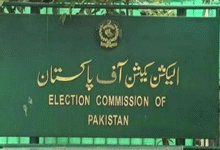Sindh Departments Defy Right to Information Act

Sahiwal: Despite the passage of more than a year, a dozen Sindh government departments persist in non-compliance with The Sindh Transparency and Right to Information Act, 2016, shrugging off information requests.
On January 20, 2023, this scribe submitted information requests to 17 provincial bodies, triggering a prolonged process. An application for internal review, mandated by Section 9(1) of the Act, followed on April 01, 2023.
Facing continued reluctance from public bodies, the journalist escalated the matter to the Sindh Information Commission. The Commission, in May 2023, promptly directed the public bodies to furnish the requested information within 10 days.
However, as of now, over seven months later, only 5 out of 17 bodies have complied, with 12 still withholding vital information. Notable among the non-compliant bodies are Chief Minister’s Inspection Enquiries and Implementation Team, Works and Services Department, Environment Climate Change & Coastal Development Department, Sindh Wildlife Department, Excise, Taxation & Narcotics Control Department, Sindh Higher Education Commission, Culture, Tourism, Antiquities and Archives Department, Minorities Affairs Department, Sindh Prisons & Corrections Service, Social Welfare Department, Health Department, and Sindh CM Secretariat.
The ongoing defiance poses not only a challenge for the Sindh Information Commission but raises broader concerns about the efficacy of information commissions nationwide.
Sindh Transparency and Right to Information Act, 2016:
Enacted to promote transparency and access to public information, The Sindh Transparency and Right to Information Act, 2016, sets the framework for citizens to request and receive information from public bodies, fostering accountability and openness.
Sindh Information Commission:
Established as an independent body, the Sindh Information Commission plays a crucial role in enforcing the right to information. Its interventions aim to ensure compliance with the law, facilitating transparency and empowering citizens to hold public institutions accountable. The current challenges underscore the need for robust implementation mechanisms to uphold the principles of the Act.






